
Leaky Natural Gas Wells (start time 6:22). We speak with Greg Frost, a scientist from the University of Colorado at Boulder and the National Oceanic and Atmospheric Administration (NOAA), about a new study, which is being published by the Journal of Geophysical Research. The study indicates that natural gas drilling creates higher amounts of methane leakage into the atmosphere than previous estimates had indicated. Methane is a potent greenhouse gas, and unless this problem of leakage is solved, there is concern that drilling for natural gas might cause higher levels of greenhouse gases in the atmosphere than burning coal. We also offer an extended version of this interview.

Recent Contributions of Glaciers and Ice Caps to Sea Level Rise (start time 14:25). Scientists at CU’s Institute of Arctic and Alpine Research now have used eight years worth of satellite data to a clearer picture of how climate change is impacting the cryosphere, or ice-covered parts of the planet. (See animations here.) Knowing how much ice has been lost during this time can help scientists understand how melting ice might contribute to sea level rise, both now and in the future. But there have been conflicting stories in the press about how the results should be interpreted. We talk with Tad Pfeffer, one of the study’s coauthors, to discuss what’s really happening to the Earth’s ice.
Hosts: Joel Parker & Breanna Draxler
Producer: Joel Parker
Engineers: Jim Pullen & Shelley Schlender
Additional contributions: Beth Bartel
Executive producer: Shelley Schlender
Listen to the show:
Podcast: Play in new window | Download (Duration: 23:48 — 21.8MB)
Subscribe: RSS

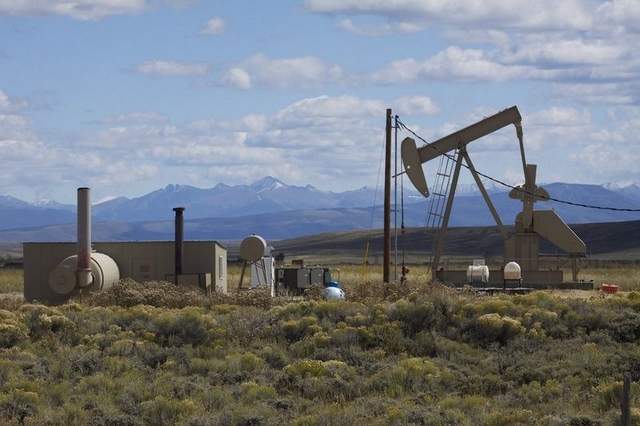


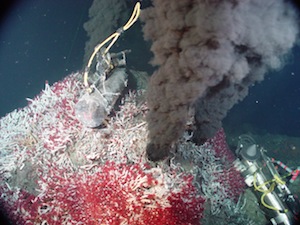
 Underwater Volcanoes (start time 5:45). Most of our planet’s volcanoes are out of sight, and largely out of mind. Hidden under sometimes thousands of feet of water, volcanoes on the sea floor bubble and boil away without our knowledge and largely without our understanding. We talk with Oregon State University volcanologist
Underwater Volcanoes (start time 5:45). Most of our planet’s volcanoes are out of sight, and largely out of mind. Hidden under sometimes thousands of feet of water, volcanoes on the sea floor bubble and boil away without our knowledge and largely without our understanding. We talk with Oregon State University volcanologist  Sleep (start time 15:50). As any mother knows, when children get cranky, one of the best solutions is to “go take a nap.” What is less understood is whether or not those naps can be now and then, or whether it’s important to keep them regular. We speak with an expert who has just published a study that looks at the question of napping among preschool children. Her name is
Sleep (start time 15:50). As any mother knows, when children get cranky, one of the best solutions is to “go take a nap.” What is less understood is whether or not those naps can be now and then, or whether it’s important to keep them regular. We speak with an expert who has just published a study that looks at the question of napping among preschool children. Her name is 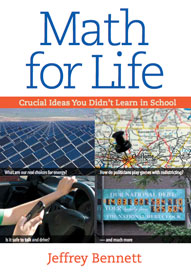
 One often hears people state “I’m not good at math” or that they don’t like math because it they don’t think it has any relevance to their day-to-day life (other than, maybe, to balance a checkbook). However, both of those myths are addressed head-on in a new book titled “
One often hears people state “I’m not good at math” or that they don’t like math because it they don’t think it has any relevance to their day-to-day life (other than, maybe, to balance a checkbook). However, both of those myths are addressed head-on in a new book titled “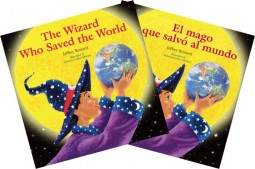

 Feature #1 (time mark 5:30) When people think of Colorado, they usually don’t think about “oceans”. After all, Colorado doesn’t have much of a coastline these days, though it was definitely had oceanfront property a few hundred million years ago. However, being in a landlocked state doesn’t mean that there isn’t any thing we can do to impact the health and ecology of the ocean and marine biology. Co-host Joel Parker talks with Vicki Goldstein, founder and president of the
Feature #1 (time mark 5:30) When people think of Colorado, they usually don’t think about “oceans”. After all, Colorado doesn’t have much of a coastline these days, though it was definitely had oceanfront property a few hundred million years ago. However, being in a landlocked state doesn’t mean that there isn’t any thing we can do to impact the health and ecology of the ocean and marine biology. Co-host Joel Parker talks with Vicki Goldstein, founder and president of the 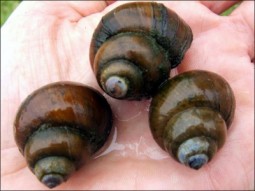 Feature #2 (time mark 14:10) Nitrogen – we can’t live without it, but you can have too much of a good thing. In its gaseous form nitrogen is harmless and makes up nearly 80 percent of the atmosphere. The worldwide population never would have reached 7 billion people without nitrogen, in the form of chemical fertilizer. But excess nitrogen –from fertilizer runoff, manure, human sewage and other sources is wreaking havoc on the environment. Co-host Susan Moran talks with John Mischler, a PhD student at CU Boulder, who is researching worms and snails in Colorado and Africa. He talks about how excess nutrients in ponds, lakes and elsewhere can lead to the spread of parasitic disease from trematodes to snails to us.
Feature #2 (time mark 14:10) Nitrogen – we can’t live without it, but you can have too much of a good thing. In its gaseous form nitrogen is harmless and makes up nearly 80 percent of the atmosphere. The worldwide population never would have reached 7 billion people without nitrogen, in the form of chemical fertilizer. But excess nitrogen –from fertilizer runoff, manure, human sewage and other sources is wreaking havoc on the environment. Co-host Susan Moran talks with John Mischler, a PhD student at CU Boulder, who is researching worms and snails in Colorado and Africa. He talks about how excess nutrients in ponds, lakes and elsewhere can lead to the spread of parasitic disease from trematodes to snails to us.
 In today’s show take a look at the future of wind energy. We have with us in the studio
In today’s show take a look at the future of wind energy. We have with us in the studio 
![hs-2011-23-d-web_print Pluto and its moons [click to enlarge] (credit: NASA, ESA, M. Showalter, Z. Levay)](http://howonearthradio.org/wp-content/uploads/2011/08/hs-2011-23-d-web_print-255x255.jpg)
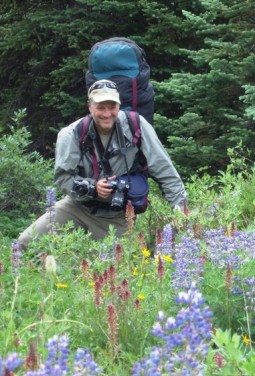

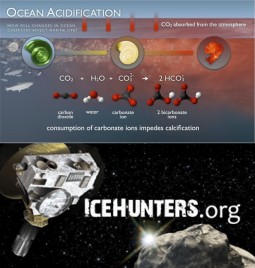

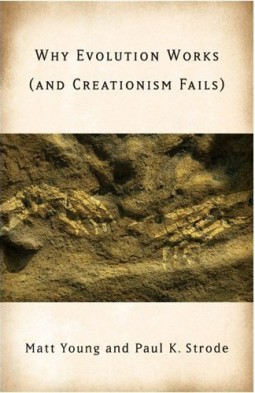
 The
The